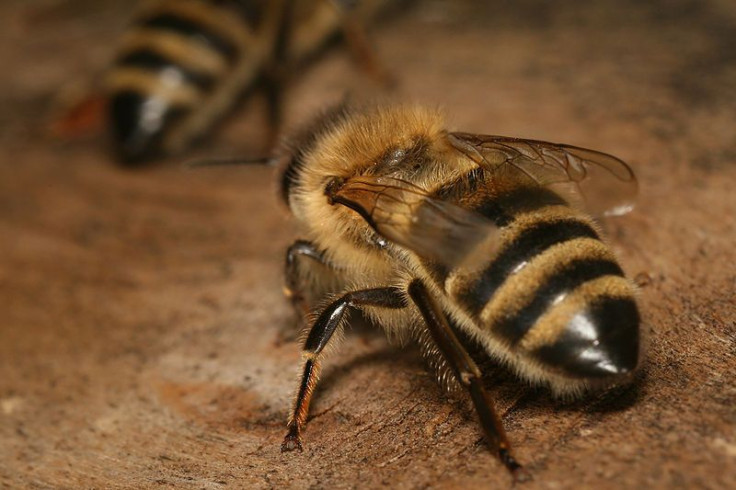Bee Sting Therapy In China Generates Buzz As Chronic Illness Cure; Lung And Brain Cancer Patient Credits Stings For 'Doubled Life Expectancy'

The sight of a bee may prompt people to run in the opposite direction, but in China, patients suffering from chronic illnesses are voluntarily going to clinics to get their bee stings. According to the Centers for Disease Control and Prevention (CDC), thousands of people are stung by insects each year, and as many as 90 to 100 people die because of allergic reactions in the United States. The average person can tolerate 10 stings per pound of body weight. Surprisingly, a number of people are testing the very boundaries of this limit. In China, apitherapy, or bee sting therapy, is used to treat acute chronic pain and illnesses. This alternative form of therapy not only involves venom from bees, but also uses all hive products, usually a combination of them, says the American Apitherapy Society. While the medical community in the U.S. has raised its eyebrows over the alternative treatment, Dr. Wang Menglin — a bee acupuncturist in China — firmly believes in the concept and its healing powers for his patients.
Read more: Killer Bees Kill Horses: Swarm Of 30,000 Attacks Mangeta, Texas Couple And Their Animals
Bee Sting Therapy
Menglin’s Beijing clinic has treated more than 27,000 people with the painful procedure, reports France 24. The bees, specifically of an imported Italian variety, are used to give the patient dozens of punctures in one session. "We hold the bee, put it on a point on the body, hold its head, and pinch it until the sting needle emerges," said Menglin about the procedure to the Associated Foreign Press. After the sting, the bee dies instantly.
Menglin claims his traditional Chinese medicine (TCM) treatment can be used to treat the “most common diseases of the lower limbs” to more serious diseases like arthritis and cancer. One of Menglin's patients, who suffered from lung and brain cancer, said that doctors had given him a little over a year to live. The patient now believes that he has almost “double his life expectancy” thanks to bee stings. “From last year up until now, I think I'm getting much stronger," he said to the Associated Foreign Press.
According to the American Apitherapy Society, some of the life-threatening conditions that apiterapy could reportedly ward off include multiple sclerosis (MS), arthritis, and infections. However, many health professionals overseas claim that there is no scientific evidence to support the use of bee products to cure chronic conditions.
Read more: Bee Kill-Off In Oregon: Officials Confirm Bee Deaths Result Of Insecticide 'Safari'
American health organizations refute claims
Apitherapists who believe in TCM treatment have received backlash from American health organizations, such as the American Cancer Society (ACS) and the National Multiple Sclerosis Society. The ACS website states, "There have been no clinical studies in humans showing that bee venom or other honeybee products are effective in preventing or treating cancer.” In addition, the ACS warns cancer patients that apitherapy should not be used as the sole treatment for cancer, as it can provoke serious health consequences.
Moreover, the National Multiple Sclerosis Society has put the long-standing claims to the test in a 24-week randomized study on the health benefits of bee venom for people with MS. Twenty-six patients with relapsing-remitting or relapsing secondary progressive MS underwent 24 weeks of medically supervised bee sting therapy or 24 weeks of no treatment if they were part of the control group. In the end, bee therapy did not prove to reduce disease activity, disability, or fatigue in the MS patients.
Read more: Killer Bees Are The Cause Of Death Of Texas Man Larry Goodwin; Swarm Was 40,000 Strong
While apitherapy may not reach the same level of popularity in the U.S., as it has in China, TCM treatments from animals and plants continue to be of use by the Chinese as the industry produced more than 31 percent of the nation’s total medicine in 2012, reports the National Bureau of Statistics.



























